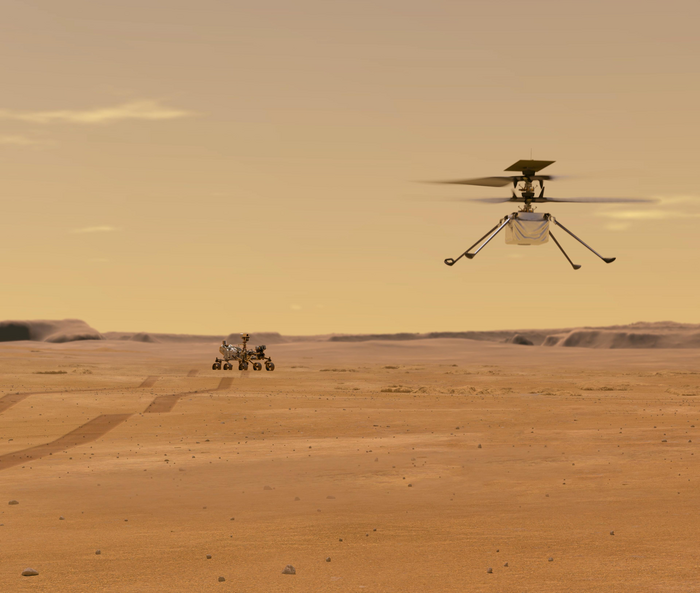China unveils plan to catch can of Martian rock samples in space and bring it back
Conventional orbital docking and transfer method may not work effectively on Mars due to its weaker gravity
China has unveiled a pioneering plan for a spacecraft to capture a can of rock samples from Mars in space and return it to Earth.
The spacecraft, developed by scientists at the Institute of Aerospace System Engineering in Shanghai, will intercept and catch a small container of rocks sent up from the Martian surface into the planet’s orbit.
The craft was unveiled a month after China announced it was pushing forward its Tianwen-3 Mars sample return programme to 2028.
As part of the mission, China plans to fly a pair of spacecraft to Mars in two separate launches. One will be an orbiter and return vehicle while the other will be a lander and ascent craft.

The lander will collect samples from the Martian surface over several months, sort and send them to the orbiter in an ascent craft launched from atop the lander.
The orbiter will capture the container, about the size of a coffee can, in space and return home.
The mission, initially slated for 2031, is expected to return a container with about 600 grams of Martian rocks, its chief designer said.

The newly unveiled craft can capture and align the container at various entry angles and positions, the scientists said in a paper published in the journal China <em>Space</em> Science and Technology.
They said conventional docking and transfer methods used on Earth can not be applied on Mars due to the red planet’s weaker gravity.
As Nasa’s Ingenuity helicopter showed, taking off from Mars can be challenging for spacecraft due to its thin atmosphere with a surface air pressure that can be as low as is found at an altitude of 30-40km on Earth.
“Due to the limited power available for taking off from the Martian surface, the platform carrying the samples into orbit has a restricted mass capacity,” the researchers said.

The new “capture-then-contact” mechanism seeks to overcome this hurdle by catching the sample container after it enters the orbit.
Once the spacecraft module locates the incoming container, its four parts will wrap around and secure the can like flexible arms”.
A cover will close over the container to ensure it doesn’t drift away into space, the researchers said.
Test results suggest the cover will wrap over the container quickly in about 1.5 seconds, the South China Morning Post reported.
Join our commenting forum
Join thought-provoking conversations, follow other Independent readers and see their replies
Comments
Bookmark popover
Removed from bookmarks